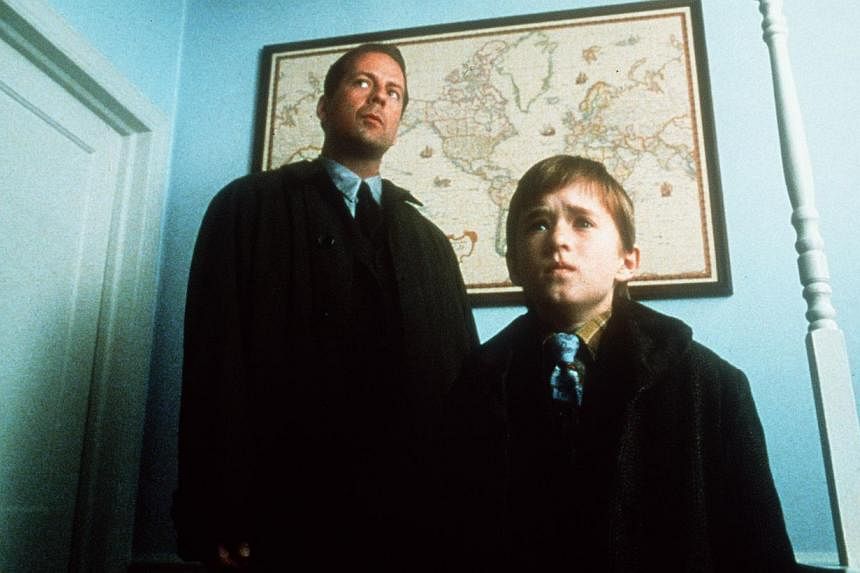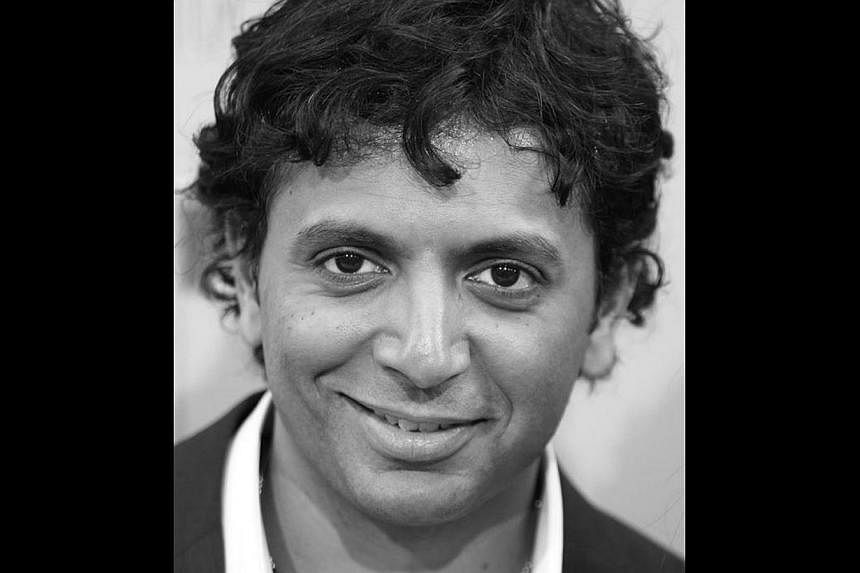If you went to the movies in 1999, you will probably remember The Sixth Sense - the supernatural thriller that creeped everyone out to become the most talked-about film of the year, signalling M. Night Shyamalan's arrival as the kind of director whose name alone would become a draw for audiences.
Fast forward 15 years, though, and that same name has become a bit of a punchline, thanks to box-office bombs such as The Last Airbender (2010), a ludicrously plotted fantasy adventure that was beaten to a pulp by critics.
But now the 44-year-old - once heralded by Newsweek as the "next Steven Spielberg" - is staging a comeback.
And as is the fashion with so many brand-name cinematic auteurs these days (Steven Soderbergh with The Knick and David Fincher with House Of Cards), he is reinventing himself on the small screen - in this case, with the new Twin Peaks-esque television show Wayward Pines, starring Matt Dillon as a government agent sent to investigate the disappearance of two colleagues in a sleepy town (coming next year to Fox on SingTel mio TV Channel 330 and StarHub TV Channel 505).
Far from seeing it as a stepdown, the India-born, Pennsylvania-raised film-maker tells Life! he is excited about his move to television, as he feels stories there resonate more these days than they do at the cinema, where it has become all about marketability.
Shyamalan, who is unusual because he found success not with big-name franchises but original stories that he both wrote and directed, also confesses to being a little jaded when it comes to the movie business. "I don't want to frame it as disillusionment," he says, smiling. "But you can probably take it as that."
And who can blame him?
He came out guns blazing with The Sixth Sense, an unforgettable story of a little boy who sees dead people, which became nothing short of a box-office phenomenon. Fuelled by stellar reviews and word-of-mouth buzz, it ran in American cinemas for almost a year and is still considered one of the top-grossing scary movies of all time, with US$672 million earned worldwide.
Like his follow-up hits Unbreakable (2000), an atypical superhero origin story, and the alien thriller Signs (2002), The Sixth Sense wowed the critics with what would become his signature touch: deft character work combined with carefully crafted thrills, all underpinned by heftier themes - often about family or faith - for those who cared to look.
But then came the unfortunate After Earth (2013) and The Last Airbender, which led to a merciless drubbing on all fronts.
Speaking at a press event for Wayward Pines - which Shyamalan has executive-produced and co-directed based on the suspense novel trilogy by author Blake Crouch - the director laments the decline of quality at the movies.
"Once upon a time, the sole purpose of cinema was the resonance of the story. So with a drama such as Five Easy Pieces With Jack Nicholson (1970), it would be, 'Oh, you've got to see that movie. What's it about? You know, it's hard to explain...' But it would stay in the theatres all year long because people liked the experience of it."
Nowadays, it is mostly about a film's commercial appeal.
"The equation has shifted in the film industry, where if you have an incredibly marketable movie, they will greenlight it, regardless of its quality and resonance. And it's squeezing all of us who solely want to do it for those things.
"But it's shifting the other way in TV, where there are opportunities for film-makers who are interested in tone and performance and character, and not necessarily solely interested in sellability, although they're not mutually exclusive."
"Resonance" is obviously a big touchstone for Shyamalan, who explains it thus: "A show like Mad Men doesn't have a lot of people watching it, but it's hugely resonant."
He adds of the award-winning 1960s drama set in a Madison Avenue advertising agency: "It's affecting clothing, the way we talk, the way we think about history. So a couple of million people watch it but it's affecting hundreds of millions of people."
He believes TV is fast catching up to film in terms of cachet and prestige as well. "I used to go, 'Oh no, they took one of our (film) actors! They gave him or her the lead in that TV show and now they're gone from us.'
"I don't have that feeling any more. It's becoming a place where there's no stigma. To be honest, that stigma was appropriate once - film was specific and TV was general, that was the reality and the type of acting and storytelling you would do.
"That has changed from The Sopranos on," he says, referring to the groundbreaking mafia series from 1999 to 2007 that showed TV could produce high-quality drama too.
Whereas once TV shows were not particularly challenging or thought-provoking, now more and more original programming is making viewers stop and think, often with "that ambiguous moment - does she hate him, love him, want to kill him? She's not sure, and that's totally cool on TV now and starting to become inappropriate in film. Which is sad".
After directing the pilot episode of Wayward Pines - which is being compared to surrealist director David Lynch's TV thriller Twin Peaks (1990-1991) - Shyamalan feels like he has adapted to this format.
"It's a really interesting format, television, especially this kind of 10-episode thing. The pacing of how you have to tell a story, I think it's started to become internal for me.
"A lot of my movies, for whatever reason... were all 107 minutes - The Sixth Sense, Unbreakable, Signs, The Village. Because it's maths, I hear the rhythm of it. And I'm starting to understand the rhythm of TV. I can now read a thing and go, 'This doesn't have enough fuel' or 'This is too complicated' to do 10 episodes."
But in terms of pacing, Wayward Pines - the plot details of which he is being deliberately vague about - will take the unorthodox step of setting up a central mystery and then revealing the twist mid-season. This rather bold move was to avoid testing the audiences' patience too much, which other suspense thrillers such as the TV series Lost, about the supernatural goings-on with a group of plane-crash survivors on an island, may have been guilty of.
"And so we made a very interesting decision to reveal the twist mid-season as opposed to at the end. The whole advantage of doing 10 episodes is to be intense with the storytelling and not do any of those kind of 'vamping' episodes where people are pulling and stretching it. Like, how many people can be on the island in Lost, you know?"
When it comes to comparing his new show with other thrillers, however, he wants to put the brakes on taking the Twin Peaks parallels too far. "It's Twin Peaks in its tone, but there's a reason they're all acting odd in our town - in Twin Peaks, there is no reason."
Thus Wayward Pines will be similar to Shyamalan's films in that it is important for him that the central conundrum be solved.
"My movies are about comic books or aliens but they're just metaphors to talk about faith. Wayward Pines also has that - an opportunity to talk about something deeper. I enjoy telling stories like that, so you can have conversations about where we are."
The director is not giving up on films entirely though.
He has just finished shooting a low-budget indie thriller cryptically titled Sundowning, in which things go awry when a single mother and her two young children visit their grandparents. The term is believed to be a reference to the odd, confused behaviour displayed by some Alzheimer's and dementia patients in the later part of the day.
Whatever medium he works in, he says he is ultimately drawn to the unknown.
"I was always a fearful kid," says the film-maker, who has three daughters aged 10 to 18 with wife Bhavna Vaswani, a psychologist whom he met while they were studying at New York University.
"I'm still fearful. I was certain my plane was going to crash yesterday because my chair was shaking. And it was just the guy behind me kicking it," he says, laughing. "But I had to get up to make sure because it was like, I'm either getting a premonition that we're going to die or this guy's an a******. And luckily, that's what it was."
Wayward Pines will air on Fox (SingTel mio TV Channel 330 and StarHub TV Channel 505) next year.



